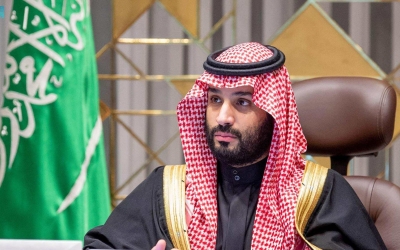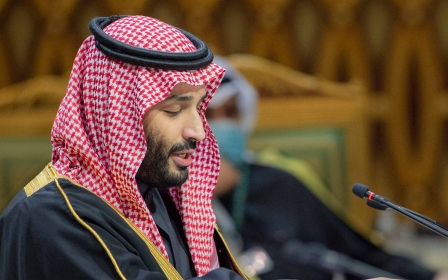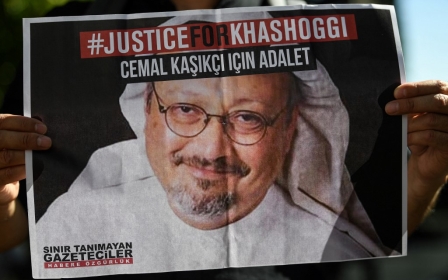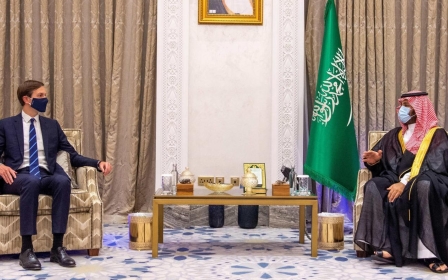'Khashoggi ban': US lawmakers demand clarification as Saudi prince visits
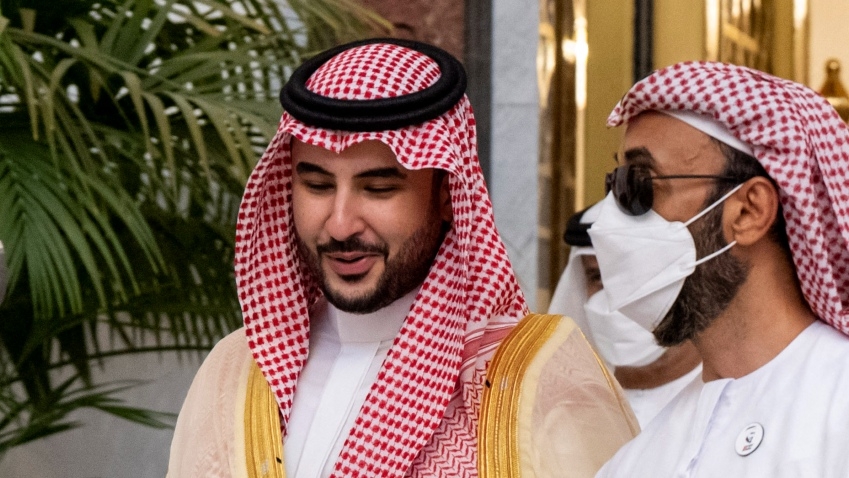
Two US lawmakers sent a letter to the Biden administration on Wednesday seeking an explanation as to why Saudi Deputy Defence Minister Prince Khalid bin Salman was granted a US visa, and asking whether or not he is on a list of Saudi citizens barred from entering the US over the 2018 killing of Middle East Eye columnist Jamal Khashoggi.
The letter, sent by congressmen Tom Malinowski and Brian Fitzpatrick, comes as Prince Khalid, the younger brother of Crown Prince Mohammed bin Salman (MBS), arrives in Washington this week for a series of meetings with US officials.
"According to public reports, Prince Khalid met with a range of senior US government officials, seemingly undermining the Administration’s February 2021 statements indicating that you would seek to recalibrate the US-Saudi relationship by engaging your official counterparts," the letter said.
"We seek to understand the rationale for Prince Khalid’s multiple visits and whether the Department of State reviewed allegations regarding his alleged role in targeting Saudi dissidents, consistent with the Administration’s Khashoggi Visa Ban."
Prince Khalid, who also visited Washington last July, is the highest-profile Saudi official to visit the US capital since the Biden administration released an intelligence report concluding that MBS was responsible for the murder of Khashoggi.
New MEE newsletter: Jerusalem Dispatch
Sign up to get the latest insights and analysis on Israel-Palestine, alongside Turkey Unpacked and other MEE newsletters
Riyadh continues to reject this, claiming he was killed in a rogue operation.
While the declassified intelligence report on Khashoggi's murder does not include Prince Khalid, the lawmakers referenced reporting which alleged Prince Khalid personally told Khashoggi via telephone to go to the Saudi consulate in Istanbul and assured him it would be safe to do so.
Khashoggi was killed shortly after entering the Saudi consulate.
"Additionally, then Ambassador Khalid bin Salman was posted to Washington while the Saudi government engaged in a documented campaign of intimidation, including surveilling, harassing, and threatening Saudi dissidents in the United States," said the letter, first reported by Al Monitor.
Following the release of the intelligence report on Khashoggi, Secretary of State Antony Blinken unveiled the Khashoggi ban, a visa policy that would allow Washington to target "individuals who, acting on behalf of a foreign government, are believed to have been directly engaged in serious, extraterritorial counter-dissident activities".
The ban hit 76 unnamed Saudi nationals with visa restrictions.
In their letter, Malinowski and Fitzpatrick also asked if there had been any changes or exceptions made to the visa restrictions imposed on the 76 individuals.
A State Department spokesperson told MEE: "Visa records are confidential under US law; therefore, we cannot discuss the details of individual visa cases."
Over the past several months, Malinowski has spearheaded a number of letters and legislation pertaining to Saudi Arabia. Earlier this year, he sent another letter to the Biden administration, asking whether Riyadh's campaign of transnational repression would trigger a ban on US weapons.
Last week, he introduced a resolution urging the United Arab Emirates and Saudi Arabia to work with the Biden administration to increase oil production and help stabilise energy markets.
Middle East Eye delivers independent and unrivalled coverage and analysis of the Middle East, North Africa and beyond. To learn more about republishing this content and the associated fees, please fill out this form. More about MEE can be found here.


